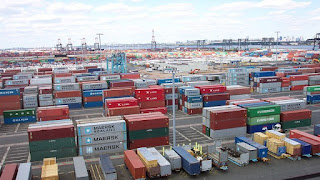Countries affected by US tariff increases are weighing their options for retaliation. Many of the same countries have pledged to lead the fight against climate change. By basing their countermeasures on the carbon footprint of US goods, these countries can defend their trade interests and underscore their commitment to climate action.
Last week, the simmering trade conflict between the US and many of its trade partners entered into a new phase. After increasing tariffs on imports such as washing machines, solar cells, soya beans, steel, and aluminium during the first half of 2018, the White House announced on July 10 that it would target an additional $200 billion worth of Chinese imports with new tariffs. China has already promised to strike back in kind.
As countries consider how to respond to US protectionism, they have a rare opportunity to kill two birds with one stone. So far, trade partners have taken the traditional route of dollar-for-dollar counter-tariffs on politically sensitive goods. The result is a trade war that risks spiralling out of control. A better option would be to target US goods based on their carbon intensity, drawing attention to climate priorities in a language the White House understands.
In a new comment in Nature magazine, we discuss the potential for so-called “border carbon adjustments” (BCAs) to strengthen climate action in the current tariff standoff. BCAs are tariffs or other carbon constraints imposed on carbon-intensive imported goods. They help prevent relocation of jobs and investment due to uneven climate action, and thereby alleviate a central hurdle for political leadership on climate change. They also incentivize laggard countries to engage in climate cooperation as a way of averting such constraints.
The Nature comment links our research on BCAs with the ongoing trade conflict prompted by US tariff increases. Economic studies have shown that properly designed BCAs can be an effective tool to level the competitive playing field and enable sustained climate leadership. Unlike existing measures to address uneven climate efforts, including exemptions and rebates, they do not mute the effect of emission-curbing policies. With adequate procedural safeguards, moreover, BCAs can be implemented in a way that respects international trade law requirements.
Read more at Trump Is Wrecking the Climate and Free T rade. Here Is a Common Solution for Both.

No comments:
Post a Comment